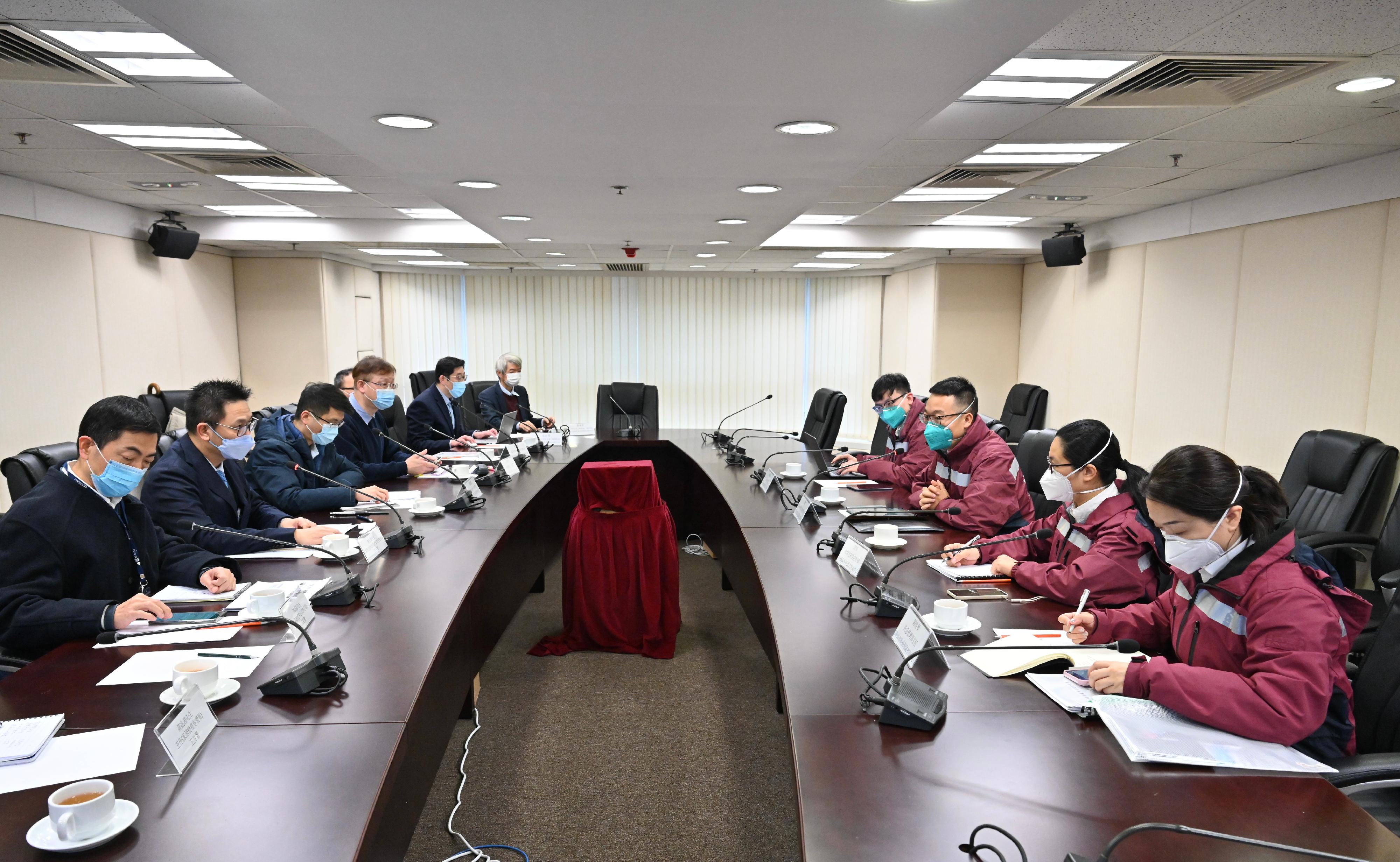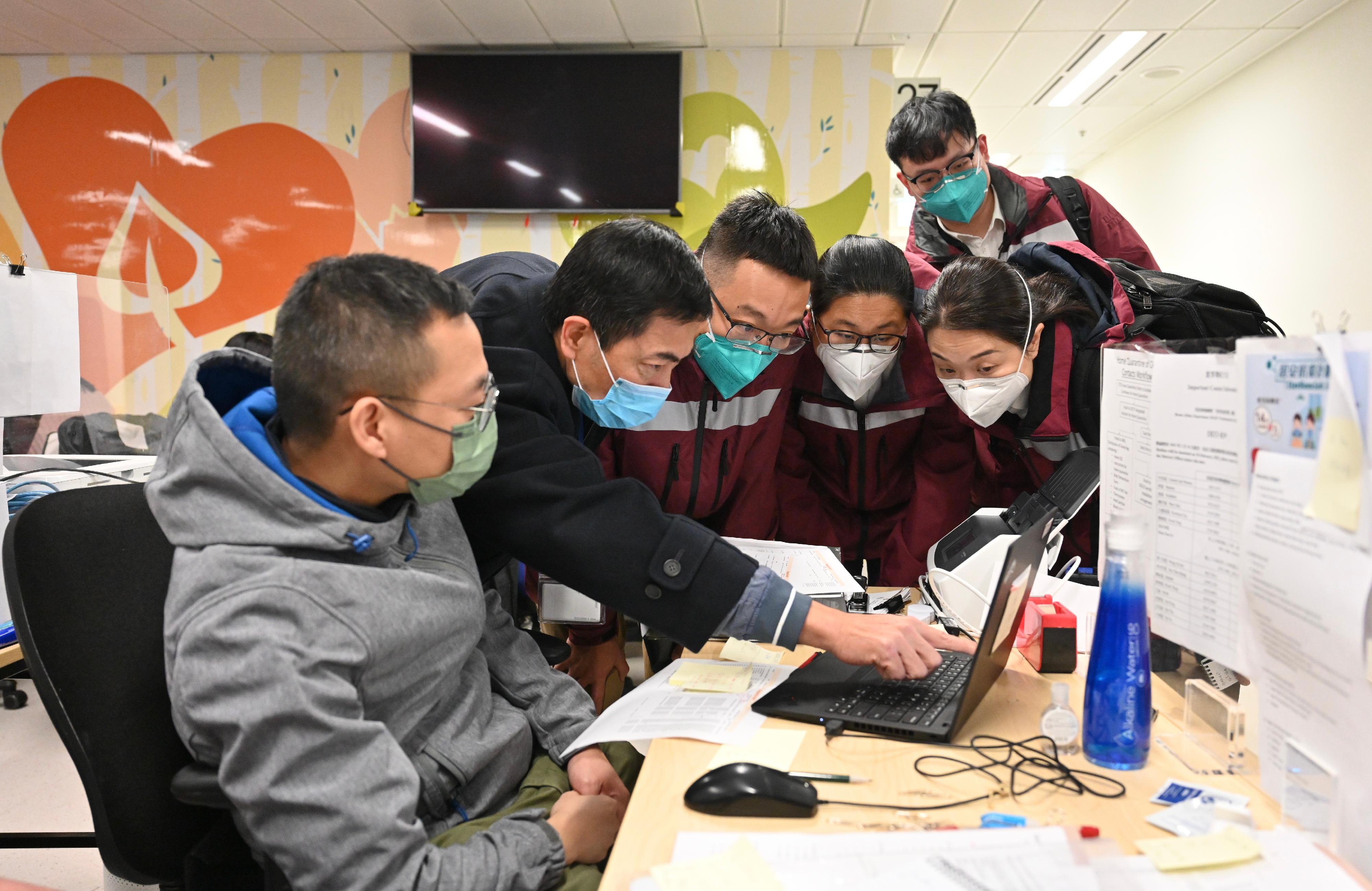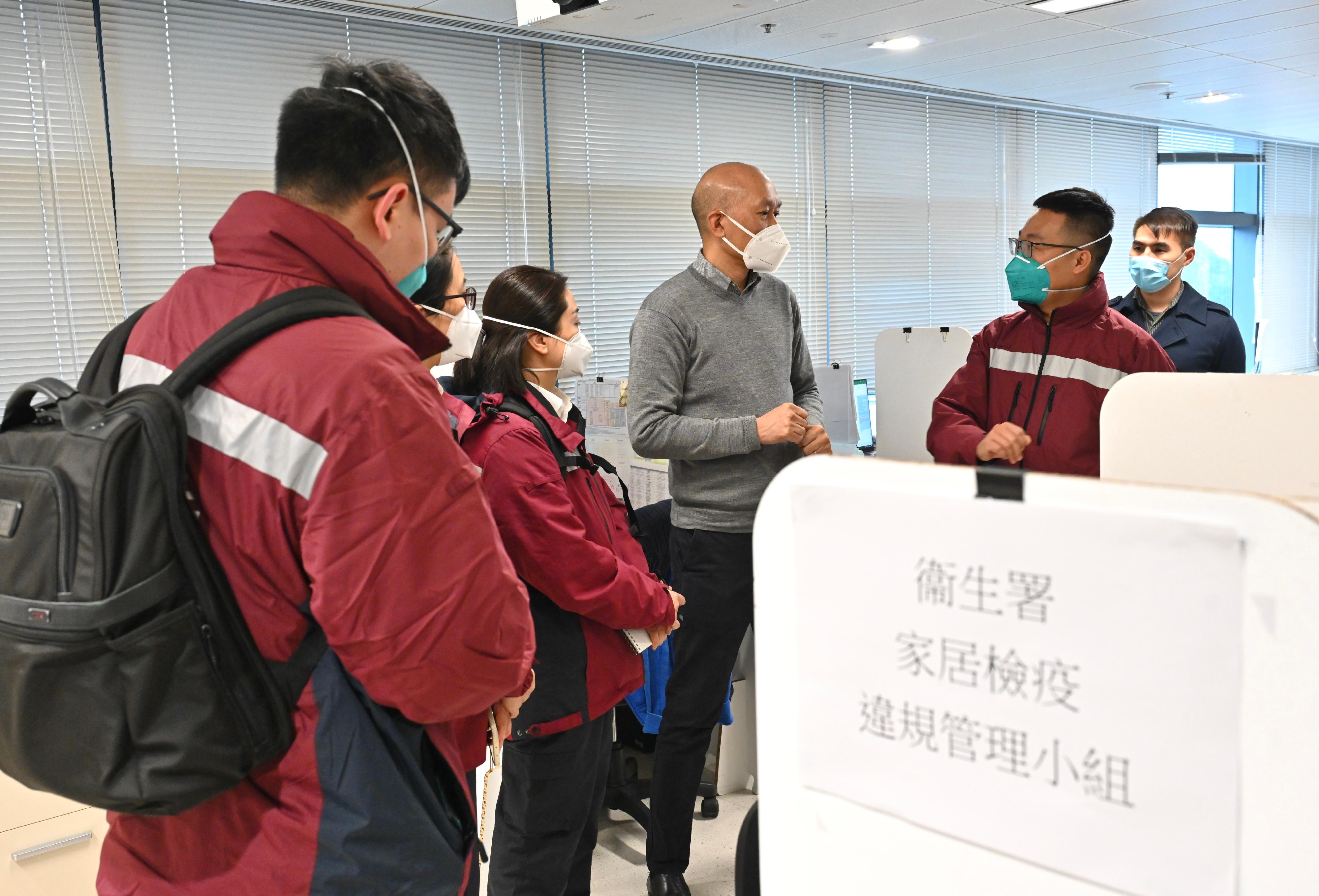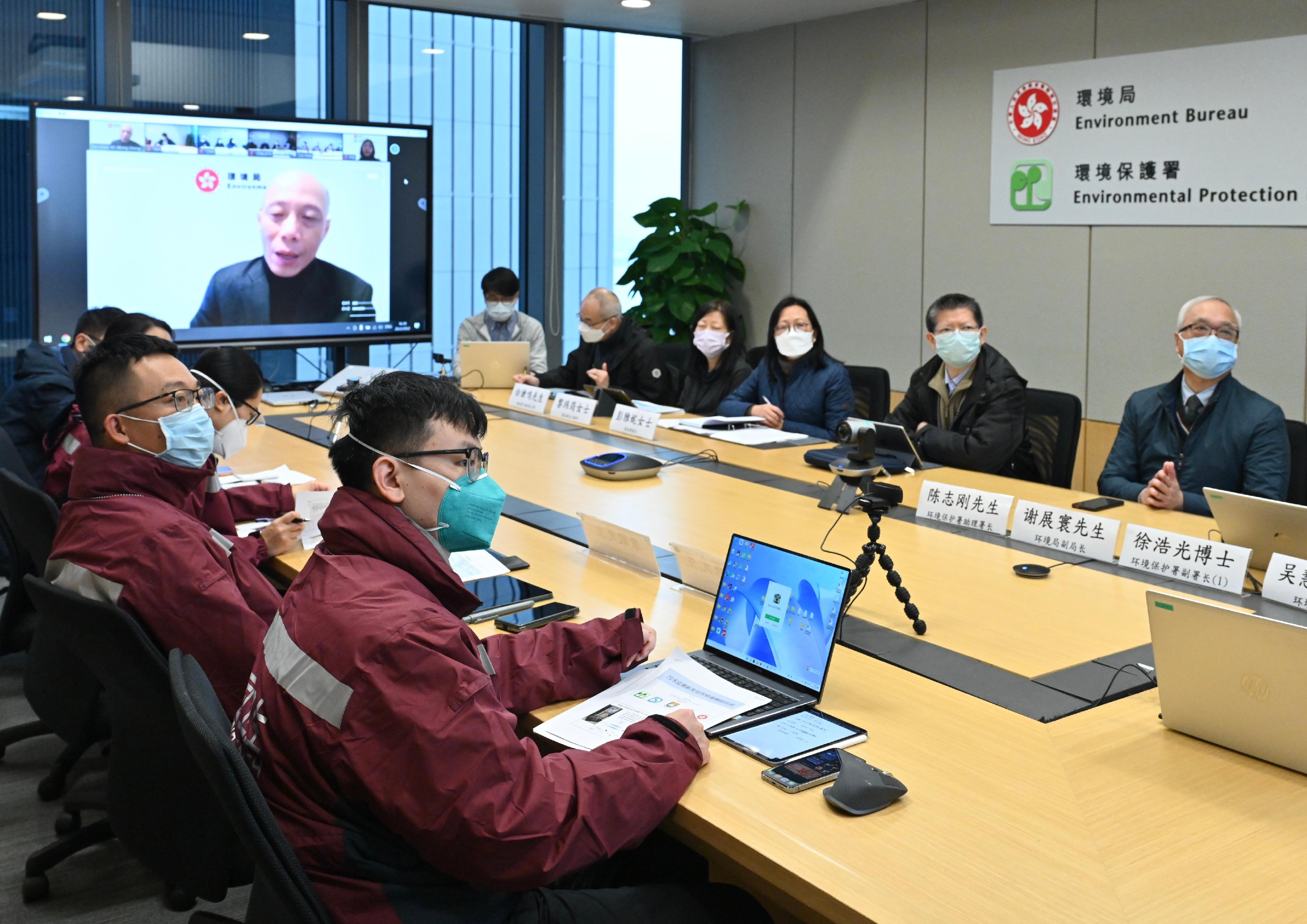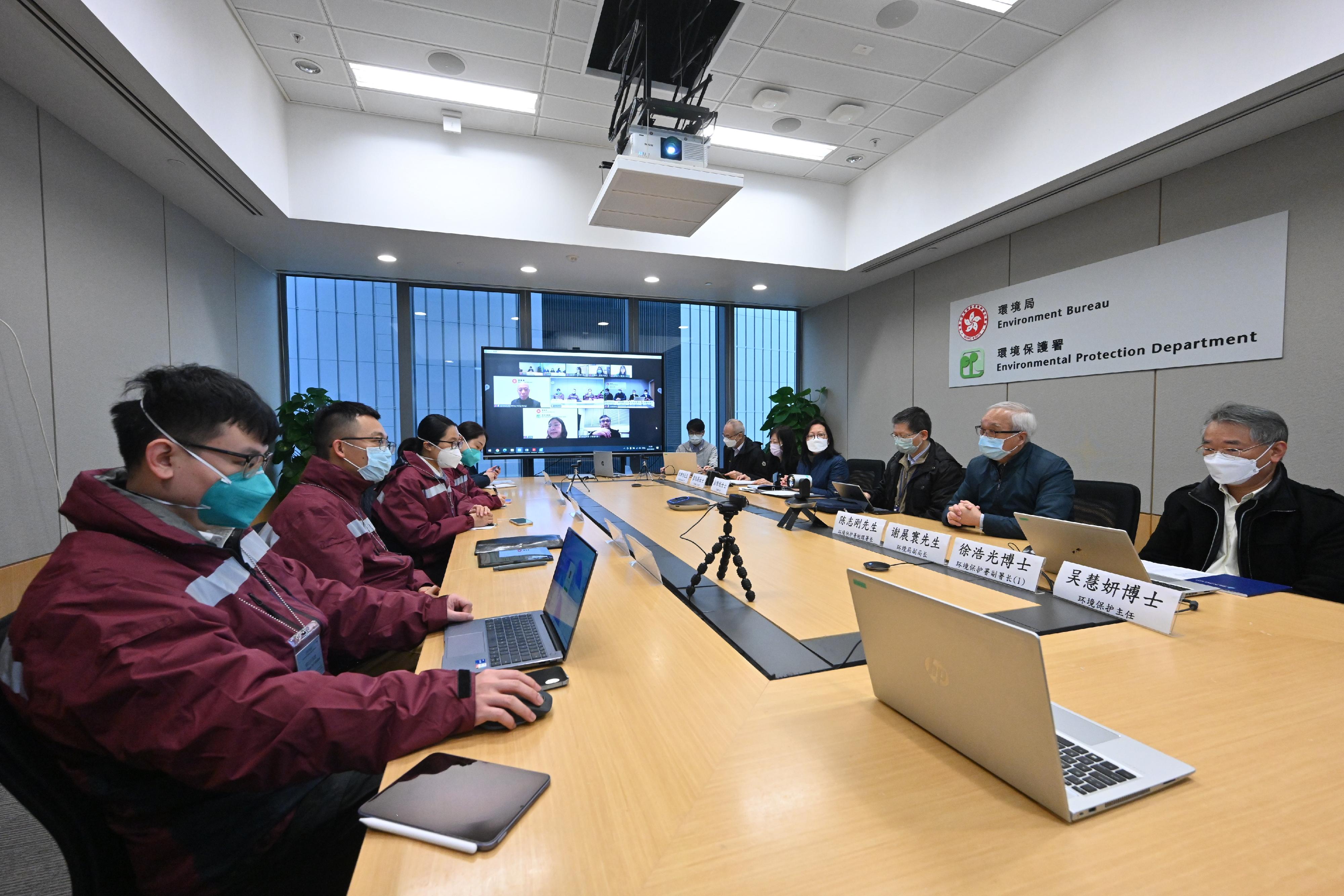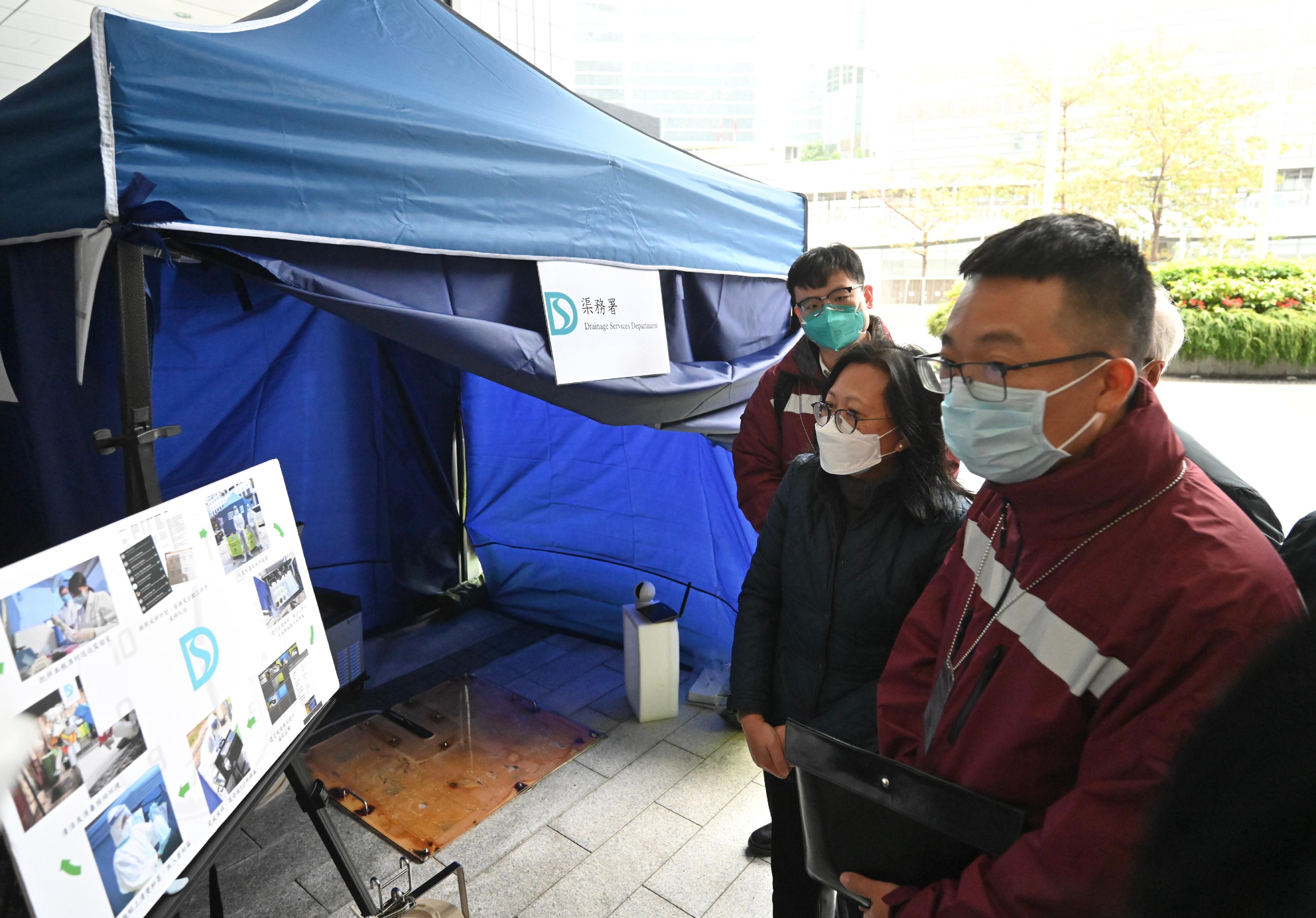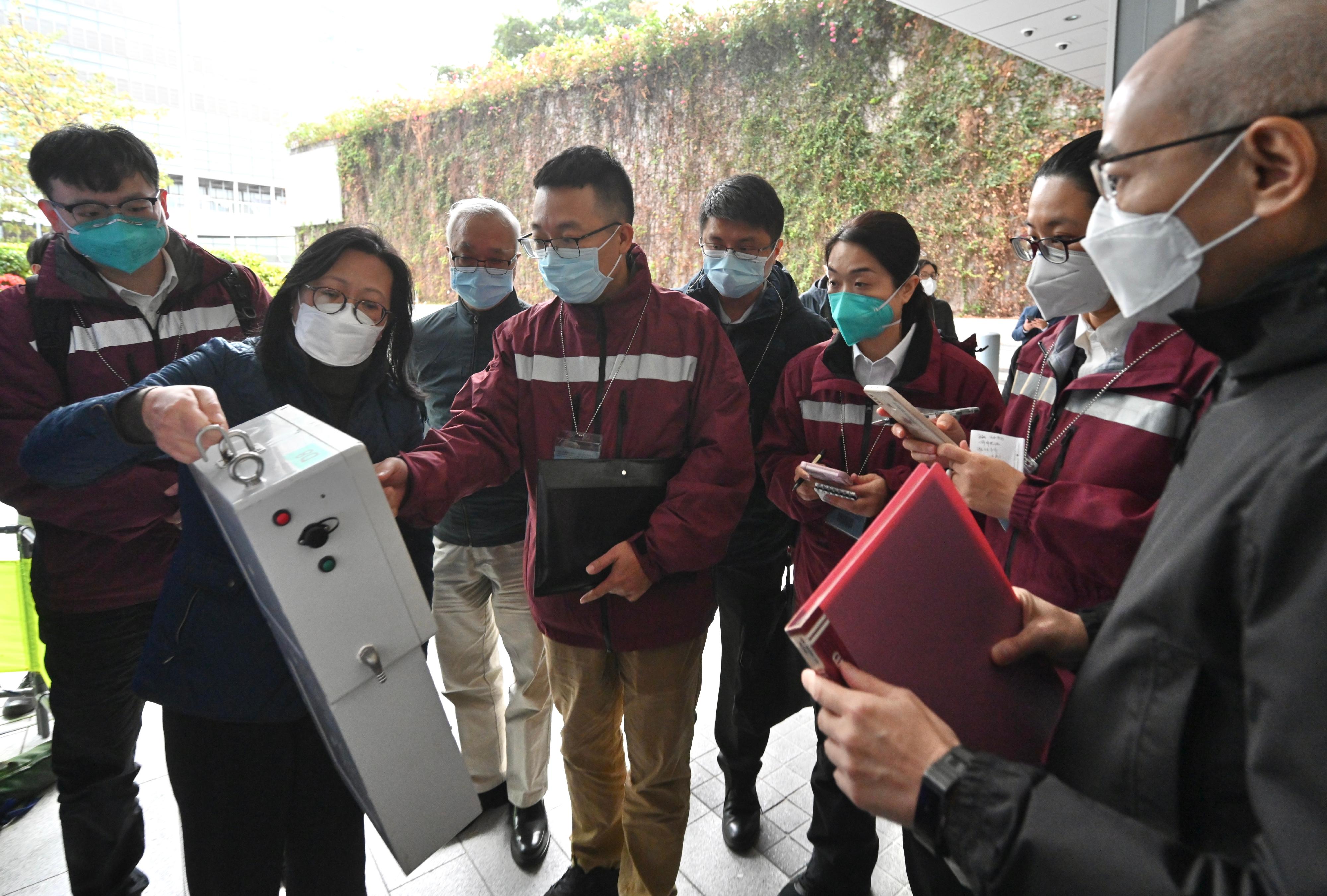Mainland epidemiological expert delegation continues its visit in Hong Kong (with photos/video)
******************************************************************************************
The Secretary for Food and Health, Professor Sophia Chan, said, "To cope with the new wave of the epidemic, the Hong Kong Special Administrative Region (HKSAR) Government has mobilised all available manpower amongst different bureaux and departments, joining hands to form a robust team to fight the epidemic. We will carefully study and implement the recommendations offered by experts, and manage the various aspects of anti-epidemic work. The Government spares no effort in implementing anti-epidemic strategies that are effective, targeted and most suited to the situation in Hong Kong in order to cut the virus transmission chains as quickly as possible, and to put the fifth wave of the epidemic under control."
The expert delegation met and exchanged views with the representatives of the Office of the Government Chief Information Officer (OGCIO), the Home Affairs Department (HAD) and the Department of Health (DH) this morning. The OGCIO introduced the technical support provided for the compulsory home quarantine arrangements, including the use of Bluetooth Low Energy electronic wristband pairing with the "StayHomeSafe" mobile application, to monitor persons under compulsory home quarantine to ensure that they remain in the designated premises. Since 2020, the wristbands have been applied to more than 630 000 persons subject to compulsory quarantine. The HAD, on the other hand, introduced the scope of services and mode of operation of the 24-hour hotline (1833 019) set up to support the "StayHomeSafe" Scheme. The HAD also briefed the delegation on the efforts made to appeal for the support from the property management sector to the Scheme. The delegation, accompanied by representatives of the DH, then visited the Quarantine Centre Task Force to learn about the quarantine and isolation work done by the HKSAR Government.
In the afternoon, the Secretary for the Environment, Mr Wong Kam-sing, together with representatives from the Environmental Protection Department and the Drainage Services Department (DSD), as well as Professor Zhang Tong of the Department of Civil Engineering of the University of Hong Kong, briefed the expert delegation on the scientific and technological basis and the continual development of the sewage surveillance programme, the implementation of programme to reinforce the Government operations and its help in fighting the coronavirus epidemic and future direction. The DSD also arranged an on-site demonstration of sewage sample collection at a temporary surveillance station.
Mr Wong said, "Since the end of 2020, the sewage surveillance team has been making use of sewage testing technology to monitor the virus spreading in various districts in Hong Kong, including the setting up of about 150 stationary monitoring stations across the city covering a population of around 5 million, as well as carrying out ad hoc sampling at temporary stations tactically in response to the prevailing epidemic situation to collect more and strategic sewage samples. The team has also been studying ways to enhance the sampling process and testing capabilities, and adjusting the sampling methods in the light of the local epidemic development to ensure that the sewage testing continues to effectively assist in the fight against the epidemic."
Mainland members of the task force of epidemiologists are experts from Guangdong Province, Guangzhou and Zhongshan. They arrived in Hong Kong on February 17.
Ends/Sunday, February 20, 2022
Issued at HKT 20:25
Issued at HKT 20:25
NNNN
Photo
Audio / Video
Mainland epidemiological expert delegation continues its visit in Hong Kong





